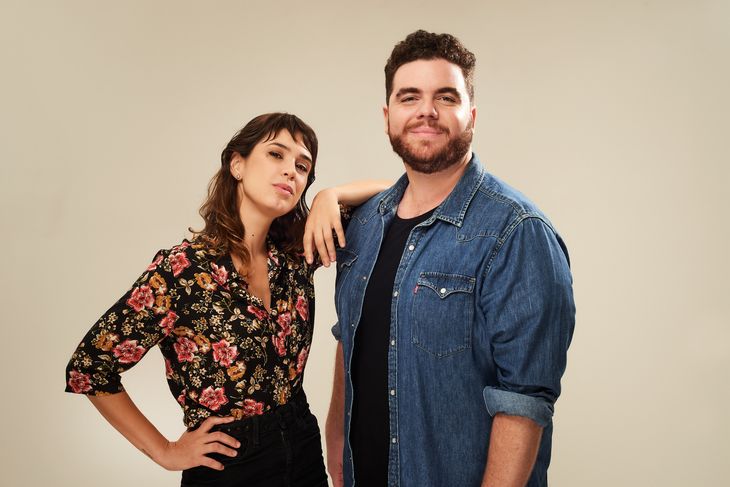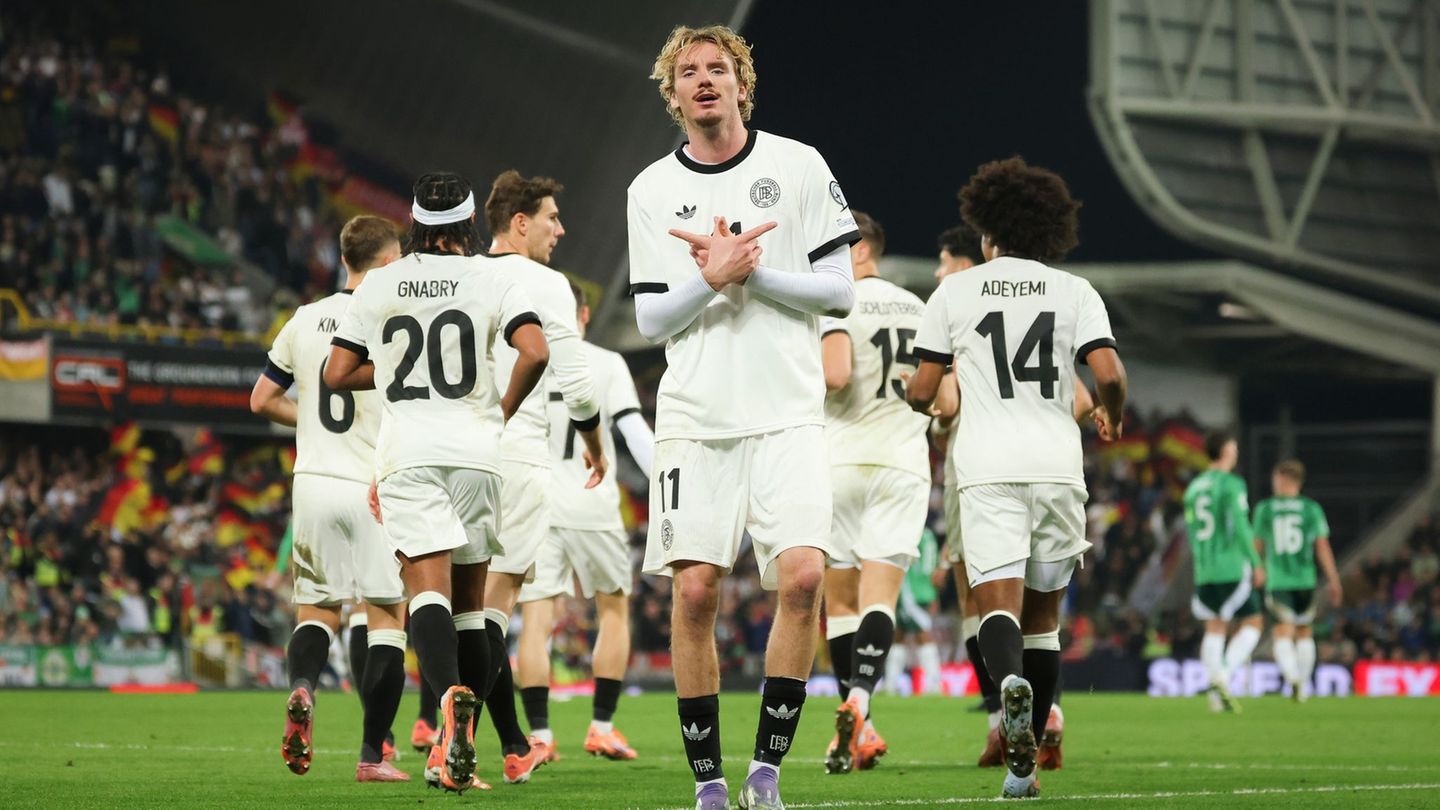Gaston Cocchiarale: It clearly portrays the lack of real encounters today. Sexual and loving encounters are greatly influenced by networks, applications and how that influences that encounter and the reality of that encounter. It also refers in a wonderful way to mandates, the shame of not being in a relationship in these times because one knows that this opens up many possibilities for encounters. But the question is what kind of encounters and how we get to them. What is at stake on a social, cultural and personal level. The work reflects this in a clear, human way, with humor and rawness. Two beings in need, hurt, with fears and with their own universes that collide.
Vanesa González: The work also speaks of the fear of loss, of the silent reason why each person is at that party, inside that apartment, that night. In the impossibility of getting closer. How transformative every minute of that meeting is.
Q: What is being investigated regarding networks in particular?
GC: The work shows the construction that one makes of their person and the speculation of what to show in relation to dating applications. The networks make a cut of one’s private life and one compares it with that of others, one chooses what to show and how, and those who are outside know it but compare themselves the same, which results in anguish, depression, and low self-esteem. . My life will never be like the other’s and with that we go in the body. One knows the fiction of the other’s life but not real life, we will believe we know it. There is some intimacy that exists but no, it is like a perverse game and it keeps causing the characters to see each other and act from there. Situations are forced, there is a rush to be happy, to be determined, to find a partner.
VG: As a space for exhibition, accumulation, affirmation, measurement or demonstration of “achievements” that are believed to be the arrival at “somewhere with sunshine.” As if there existed, at some point, an acceptable and respectable place or way of being and building a life. At the same time, what we see there challenges us and makes us wonder if we want what we think we want or why we reject what we really want or if there really is, necessarily, a need to want something more than what we already are.
Q: What interested you most about the text?
GC: The first date, where fragility and honesty abound, elements that are not typical of a first date because one tries to pretend, to show the best. But the characters let their fears and desires escape, so the work becomes very fragile. If something is missing from encounters today, it is tenderness, and the work portrays it. It is an unlikely meeting at times, it is strong that they say what they say to each other, and expose themselves on a first date. That taken from the hand of Daniel Veronese takes on another tenor. He has a sharp, critical, precise look at how to tell this situation. There are not many gadgets in the play, we are both actors for an hour and ten, a table, a wine and not much else. There is not much going back, there are no blackouts, there is no music, there are no scene changes, there are no ellipses, in real time she and I are there to connect, to be exposed, it is a wonderful acting exercise.
VG: The text is a permanent conversation between two people who love each other and are afraid. Two characters with different stories but with the same inner world. The meeting is full of distance and errors. Full of explicit and tacit details that make up a dialogue between two who communicate to love each other.
START 4.jpg
Q: How was the transition from book to stage?
GC: The text did very well in London but with Veronese’s perspective it added a depth that it didn’t have when I read it. Understand the fears that are involved in the first meeting, where one hopes to be loved, to love, and to build something with someone. The characters are in their thirties, forties, with questions that were not asked before, they talk about family, future, motherhood, it is no longer just going out to have text but worry about what is to come.
VG: The work with Daniel was at pure pace, heart, a lot of intensity and intimacy. Working to be able to abstract from the outside and be in permanent communication with the partner. A lot of work was done on understanding the work, each one of them and the bond, but always putting in the body, from day 1. At his request we started the first rehearsal with knowing handwriting.
Q: How do you see this moment in theater and culture?
GC: Theater and culture are going through a moment similar to the characters in this work, due to great exposure and fragility. I am concerned about how artists and their work are being demonized through subsidies and links with the State, which has to do with defunding of the INCAA, the INT, the FNA, there is a discursive political search to install something dangerous that scares me. I’m afraid that Argentine culture will stop having the production it had at the time, that those stories that identify us and sell the country abroad and tell the stories that we need to tell as a society and people will no longer exist. The time of the pandemic was very hard for artistic media, there is no more fiction on open TV, INCAA is defunded, independent theaters do what they can, and being an artist in Argentina is not encouraging at all. At the same time, it calls on us to put our bodies into action, take care of ourselves, not just be actors but producers, self-manage, cooperate, be empathetic with art workers and give ourselves strength after this violence that has been attacking us lately. It’s a great time to come together.
VG: Theater is the great phoenix of all worlds. No matter what happens, it has the power to rescue us from ourselves. I think it is the home and work of almost all the actors, especially due to the lack of national production in the audiovisual field. I see culture stronger than ever, it moves me, it is gratuitously attacked from all sides, it is underestimated with resentment and incomprehension, however, all of this is transformed into food for strength, unity and maturity.
Source: Ambito
I am an author and journalist who has worked in the entertainment industry for over a decade. I currently work as a news editor at a major news website, and my focus is on covering the latest trends in entertainment. I also write occasional pieces for other outlets, and have authored two books about the entertainment industry.




